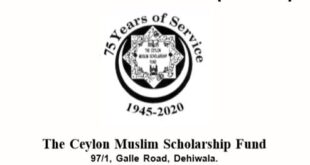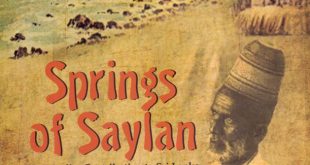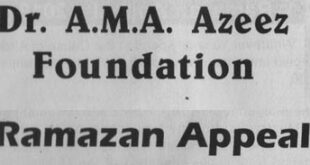1 .OVERVIEW
(a) Where over 80% of Sri Lanka’s population depends either directly or indirectly on agriculture; battling the uncontrolled use of Chemical Fertilizer and Pesticides, has now become a more important fight than defeating the LTTE. This lurking nightmare scenario was lately discovered when doctors in the North Central Province (NCP) observed an ever increasing influx of patients with stomach and kidney ailments. Several field studies were urgently undertaken, on this alarmingly dangerous trend, by the Medical sector, Department of Agriculture, Universities and NGO’s. These reports highlighted the rapid decline of the health of the farming communities of the NCP; especially the incidence of kidney and chronic stomach ailments, stemming from poisoned soil and ground water sources. Even domestic well water and irrigation canals in the NCP have been dangerously polluted. The government has refused to lend farmers money for the purchase of fertilizer this Maha season (2013), as it claimed that the fields are already over fertilized. In the Jaffna District too, a similar scenario prevailed when excess quantities of Nitrogen were found in its ground water sources. However the 30 year conflict marred the progress of correcting this dangerous trend. Sri Lanka was the largest user of chemical fertilizers in South Asian Region in the year 2008.
(b) Leading Scientists attending a seminar at the Dept of Agriculture warned of a “Time Bomb” linking the inference that Allergic toxic elements (from chemical fertilizer) to kidney disease in Sri Lanka – (see “Island” 26th October 2013). These scientists claimed that many reservoirs especially in the NCP have already been polluted by very high levels of Phosphorous causing algal blooms. Evidence of Phosphorous in major tanks around the Island, has been also confirmed by the National Water Supply and Drainage Board. In 2010 Urea, triple super phosphate (TSP) and Muriate of potash (MOP) were imported to Sri Lanka in excess quantities for cultivation of rice, tea, rubber and coconut and other agricultural crops.
(c) Needless to say that educated people go in search of organic foods, to safeguard their precious health. The poisonous effects of chemical fertilizer on the health of communities and nations has seen the Organic Food program grow in geometric progression in the developed nations, whilst its positive health attributes are only being very slowly realized in developing economies.
(d) There is an urgent if not an immediate need to both arrest and stem off this uncontrolled use of Chemical Fertilizer by our farming communities, lest we witness the slow decline and demise of our Agro based communities. On the other hand the consumers of these chemically grown foods have also become victims of numerous chronic diseases, which we are now increasingly witnessing.
2. MISSION
(a) Most of us have some knowledge of the natural benefits of compost fertilizer. In fact it is the Creators way or Natures way that all plant life sustain themselves on our Good Earth. Our ancestors lived very healthy lives consuming only foods grown off composted soil. These foods were not just nutritious but also tasted far better with their natural flavors. They even had excellent keeping qualities, where refrigeration was largely unavailable.
(b) The biological process of composting is very slow, as it takes several months for the complex molecules to breakdown to form the rich, smooth, dark crumbly and sweet smelling powder, which is readily mixed and absorbed by all plant life including the humble earth worms which are the friends and helpers of all plant life. On the other hand Chemical fertilizers kill all earthworms and other helpful micro-organisms of the soil, thus leaving soil poisonous and sterile. The very slow biological process of composting, has been the greatest impediment to sustainable agriculture . Profits are not rapidly made as yields are not that high as from Chemical fertilizer. This is the VERY CRUX OF THE SITUATION. Hence farmers in search of larger output and quick profits, exuberantly take to Chemical Fertilizer. They are totally blinded by the quick profits. They cannot see the POSITIVE DANGER TO BOTH THEIR SOIL AND WATER RESPOURCES; THE VERY BASIS OF THEIR LIVELYHOOD.
( C) The Need for a large and continuous supply of very rich compost fertilizer is the answer to this scourge of Chemical fertilizer . Accelerated molecular breakdown of composting becomes necessary if we are to address this dangerous trend of poisoning both the soil and water resources Eureka! a team of Japanese biologists researched this area relentlessly and made a breakthrough in Accelerated composting . INDEED A GREAT HUMANITARIAN BREAKTHRLOUGH in soil composting. This has been proven to be a success in the Maldive Islands where there is a very limited land area for any form of agriculture.
3. EXECUTION
(a) Our farming communities have to be gradually educated in the use of this rich composted fertilizer; as it took a several years for them to adopt to the use of Chemical Fertilizer. We must recognize the fact that whereas Chemical fertilizer brought them good profits, Compost fertilizer would bring them very reasonable profits with sustainable agriculture and healthy natural soil structure and clean water resources, resulting in healthy farming communities. This MESSAGE has to be gradually and forcefully inculcated into the thinking of the Farming Communities.
(b) We have identified a sizable area of a community engaged in Agriculture, Fishing, Animal Husbandry, and Forest products in Kinniya, in the Eastern Province as the Pilot Project Area. We intend to work closely with The Serendib Foundation (Incorporatd by Act of Parliament No.12 of 1991) with whose assistance we constructed thirty (30) Agro/domestic wells and have established a very trustworthy and close bond, from 2009 to date.
(c) An annual break down of the Agro activities of the Kinniya region, could be summarized as follows:-
(i) Over 50,000 acres of paddy cultivation on two (2) seasons. –All the hay could be used for composting.
(ii) Over 10,000 acres of Cash crops including Maize leaving approx. 50,000 tons of residue.
(iii) Cow dung form over 100,000 head of cattle and goat manure from approx. 50,000 goats.
(iV) Approximately Over 500,000 Poultry (layers and Broilers) producing poultry litter.
(v) Coastal and inland Fishing activities – producing fish meal from raw ofal
(vi) Bio-degradable TRASH FROM ENTIRE AREA INCLUDING TWO WEEKLY FAIRS a tractor/trailer
5. IMPLEMENTATION
(a) Our collaborators The Serendib Foundation, will be the Coordinators, if not the Executors; since they have both the infrastructure (land, water, power, security and organization) . The local volunteers to be paid to collect forest products, cow dung, fish and cattle ofal, poultry litter, Agro waste cuttings, dry leaves, hay, sea weed etc.
(b) The Serendib Foundation has suggested that they form a Farmers Federation to strengthen their hands to sustain this venture towards a Healthy and Successful Agro Based Community in Kinniya. For the beginning they could produce approximately one (1) ton of compost fertilizer per day assuming that there will be a continuous supply of biodegradable material available to feed the machine.
6. Estimated Cost of IMPLEMENTATION
For what is described above, the cost of implementation can be estimated as follows:
(a) One Unit Heavy Guage Stainless Steel Compost Accelerator (Japanese) US $45,000/- | 5,950,000 |
(b) One Tractor & Trailer (for collection and transport of Bio-degradable material ) | 1.300,000 |
(d ) Construction of shed/Bldg. to house Compost Machine | 750,000 |
(e ) Power, Water connections, transportation and ancillary work | 350,000 |
( f ) Casual wages for four (4) persons – until actual sales begin within six (6) months | 50,000 |
TOTAL COST Rs | 8,400,000 |
7. Conclusion
Insha Allah if the community and the well wishers decide this project can be taken up for implementation.
Helping Sustainable Agriculture is Sustainable Charity – “SADAKATHUL JAARIYA”. M.Khalid.
Post Disclaimer | Support Us
Support Us
The sailanmuslim.com web site entirely supported by individual donors and well wishers. If you regularly visit this site and wish to show your appreciation, or if you wish to see further development of sailanmuslim.com, please donate us
IMPORTANT : All content hosted on sailanmuslim.com is solely for non-commercial purposes and with the permission of original copyright holders. Any other use of the hosted content, such as for financial gain, requires express approval from the copyright owners.
 Sri lanka Muslims Web Portal Sri Lanka Muslims News Center
Sri lanka Muslims Web Portal Sri Lanka Muslims News Center
 Donate
Donate



Assalamu Alaikum Warahamathullahi wabarakathuhu
Dear Mulaffer
It is a well researched article leading to a very useful project and worth following it up. Hope and pray those interested can place their views so that we can pursue it further and hopefull can take steps for implementation
Wassalaam
AGA Barrie